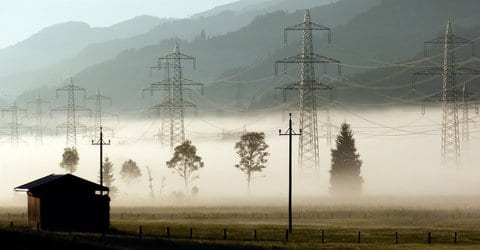Germany’s power grid outage averaged 12.7 minutes last year, 41% less than in 2006, even though renewables have grown to account for as much as a third of power generation in the country, according to data released by the federal regulator last week.
This put to rest concerns about intermittent sources of power threatening grid stability. The country is weaning itself away from nuclear power and embracing renewables generation, providing a working model of transformation of the energy sector for many other countries.
In contrast, the 28 September black-out following a storm in South Australia was blamed on the high penetration of renewable energy by Prime Minister Malcolm Turnbull. He said some state governments have set renewable energy targets “that are extremely aggressive, extremely unrealistic, and have paid little or no attention to energy security.” The storm should be treated as “a real wake-up call,” he added.
A report released last week by the Australian Energy Market Operator, however, found that “five transmission line faults, resulting in six voltage disturbances on the network” – which caused an expected reduction of 445MW of wind generation as the turbines entered fault-mode – led to the outage. The operator was not aware of the wind farms’ fault-mode settings, and did not plan for it. There were also three fossil-fuelled generators that failed. Details about the operator’s findings can be seen in our report: Update on South Australia black-out: market operator in the spotlight. For a further discussion of the issues in South Australia, see our VIP Comment, published today.
Meanwhile, there are countries that are still stretching their clean energy targets. Morocco wants to increase the proportion of energy consumption from renewables to 42% by 2020 and up to 52% by 2030, by when it aims to have 10.1GW of renewables – 4.6GW of solar, 4.2GW of wind and 1.3GW of hydro power.
Taiwan’s cabinet approved a plan last week to introduce competition into its energy market, push renewables and exit from nuclear power. The draft bill will be sent to the legislature for approval, cabinet spokesman Kuo-yung Hsu told a news conference. The draft bill stipulates that all nuclear power plants will be shut down by 2025.
Israel is planning new solar tenders for about 1.3GW, which will be awarded through a competitive process. The first tender is expected to be floated in January. Additional details can be seen in our note here.
Turkey unveiled plans to elevate renewable energy in its power mix with a tender that could be worth $1.3bn. The government is inviting bidders to construct a 1GW solar plant and photovoltaic panel factory in Turkey’s central Konya province, energy minister Berat Albayrak said in a televised press conference on Thursday. The winner will be announced in December.
In India, Prime Minister Narendra Modi’s government was planning an INR 210bn ($3.1bn) package of state aid for India’s solar panel manufacturing industry, Bloomberg News reported citing two unnamed officials. The so-called ‘Prayas’ programme is intended to create 5GW of photovoltaic manufacturing capacity from 2019.
Modi’s government is also planning to classify all hydro projects as renewable. The Ministry of New and Renewable Energy will be presenting a report to the Cabinet requesting the classification change. Currently, only smaller hydropower projects of up to 25MW are considered renewable.
Climate change could spark the world’s next financial crisis, according to Paul Fisher, who retired this year as deputy head of the Bank of England body which supervises the country’s banks. “It is potentially a systemic risk,” Fisher said in an interview in Sydney Monday. A sudden repricing of assets as a result of climate change “could be the trigger for the next financial crisis,” he added.
Fisher, a 26-year-veteran of the UK central bank, said: “You don’t need to believe in climate change, you don’t need to believe that it is man-made,” Fisher said. “You just need to believe that governments are going to do stuff and that is going to a`ffect your business. And then it is a material risk.”
Fisher said there’s a possibility of unexpected moves in financial markets as a result of climate change. He warned of the chance of a “system-wide repricing of assets happening quite suddenly.










